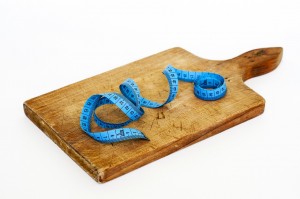We decide to lose weight because of any number of reasons: we don’t like the way we look, our clothes don’t fit, our health is in danger, our significant other is wandering, our job is at risk, or our kids are embarrassed. We tend to think of weight loss as something that involves only our body; surely no one ever decided to lose weight because of a fat brain or a bloated mind.
clothes don’t fit, our health is in danger, our significant other is wandering, our job is at risk, or our kids are embarrassed. We tend to think of weight loss as something that involves only our body; surely no one ever decided to lose weight because of a fat brain or a bloated mind.
Yet “we decide” is a mental function. When and why we make such a decision depends on our mind, not our body. This is part of the psychology of diet preparation. We may make the decision when we are five pounds heavier than we would like, or after passing the two hundred pound mark and entering true medical obesity. The actual size of the body does not trigger the decision to lose weight, such a choice in made in the brain.
The psychology of diet preparation
Since the start (and the continuation) of a diet program is a mental process, it would seem to be worthwhile to explore what factors might trigger such a decision.
1. Self-Image.
Each of us has a dual image: the face we turn to the world and our internal idea of how we appear. Although we dress and groom ourselves in an effort to be seen as attractive by others, we are far less influenced by others than by our satisfaction, or dissatisfaction, with ourselves. Does this impact psychology of diet preparation?
Explore this concept by observing yourself and others over the course of the next week. You will notice that you often receive compliments on clothes you wear that, to you, don’t feel “quite right.” Wear a favorite outfit that fits perfectly, that you think looks outstanding, and that makes you feel especially dashing – and no one notices! The same phenomenon occurs with a hairstyle. One morning, rushed for time, you can’t get your hair to do anything so you angrily pull it back with clips and hope that no one important sees you looking so awful. Voila! Three people comment that they like what you’ve done with your hair.
There is the same disconnect when it comes to our weight. If we look good in our mind’s eye, we don’t feel fat, even if friends and coworkers are whispering about our steady weight gain. However, if we see ourselves as overweight, no amount of reassurance from those around us is going to make us feel less fat. Carried to the extreme, this mental picture of our body size can lead to the eating disorder anorexia nervosa in which painfully thin individuals continue to dangerously restrict their caloric intake because they consistently see themselves as too heavy.
We decide to go on a diet, therefore, in response to our internal self-image. Thinking more about the psychology of diet preparation, some of the benefits we envision that go along with being slim and fit do take others into account: I will be more attractive to the opposite sex; I’ll be noticed at work when it’s time for a promotion; my family and friends will be jealous and will have to re-evaluate me as a stronger person than they had thought. But the real payoff for getting in shape is what it does for us personally. It is the desire to feel great about ourselves that carries us through the pain and monotony of diet and exercise. It is the future vision of ourselves in our mind that spurs us toward our goal. Losing that vision, or concluding that we won’t feel that much better about ourselves, are the reasons we give up and fall back into the relative comfort of settling for just “okay.”
2. Body versus Mind dominance.
We all wage a lifelong internal battle between our body and our mind. Each is dominant at different stages of development. As infants, we are little more than a collection of sensations. We explore the exciting new world around us through touching everything within reach, tasting everything we can put into our mouths, watching the movements of everything around us, and listening to all the sounds we hear until we eventually learn to imitate them.
As we move into our early school years, we start to concentrate on our minds. We voraciously devour immense amounts of information. We learn to read and our world expands its boundaries by a thousand percent. We learn to use the Internet and a limitless universe is at our fingertips. This could be the start of our approach to the psychology of diet preparation.
Then we move into puberty and, overnight, our appearance becomes the dominating factor in our everyday lives. We navigate the pitfalls and pleasures of adolescence where popularity and being cool are so much more vital than mere learning or mental development. We spend an inordinate amount of time on our bodies. We try new clothes, new hairstyles, and new makeup. We have body parts pierced and undergo the pain of a tattoo because it will make us stand out. We primp, and groom, and force ourselves into the styles our peers have judged as “in.”
As we mature, we seek to balance our mental and physical selves. While our bodies reign supreme in the attract-a-mate environment, we need to exercise our minds to advance our careers and to develop deep relationships that move far beyond mere physical attraction.
It is when we settle down, and start to build the good life we want, that our efforts and energies turn towards things outside ourselves: children, significant others, friends, family, and work pursuits. We have so much happening around us and so much to do that we lose touch with both our bodies and our minds. We slip into our own comfort zone where so many of our needs are fulfilled by food. It eases our anxiety, relieves our frequent frustrations, and makes periodic bouts of the blues bearable. It oils our social interactions. It becomes a vital cog in how we demonstrate affection for those we love. We continue to see ourselves as we have always been and ignore the love handles and pockets of fat that attach themselves to parts of our body we resolutely ignore. Our bodies, and our internal image of our bodies, become more and more discordant, impacting our psychology of diet preparation.
3. Our sense of self-efficacy.
Self-efficacy is a term used in psychology to describe an individual’s belief that any action they take will have an effect on the outcome. It is not self-confidence, nor a belief that one is competent to do something, although it may involve both. It reflects our inner expectation that what we do will effect the results we want.
If I lack this belief, then I fear that whatever I do will not bring about my desired goal. Bordering on helplessness, it leads to self-defeating thoughts, and psychology of diet preparation:
“No matter how carefully I diet, I don’t lose weight . . .” “I could work out every day but I’ll never get rid of these thunder thighs . . .” “I try to eat healthier foods but my hips just keep on spreading . . .” “No matter what techniques I try, nothing is going to keep the wrinkles away . . .”
If I have a strong sense of self-efficacy, my belief system and thought patterns will sound like:
“All I have to do is get motivated and I can whip my body into shape in a few weeks . . .” “I just need to pick a date to start my diet and I’ll be on my way . . .” “I may have neglected myself for a while but some hard work will bring me back . . .”
Whether or not we start a diet, decide to get in shape, or start taking better care of ourselves is, ultimately, a personal decision which may, or may not, be made as we have planned. The difference lies in the expectation of success and it is always easier to set out on a journey we anticipate will be successful than it is to drag ourselves toward a goal where failure is the most likely outcome.
How can we combine these concepts to work for us in our desire to become slim, fit, and attractive?
We begin by examining our self-image and how we appear to others. Merely asking others “Do you think I’m getting too heavy?” doesn’t work unless you have a brutally honest friend or you ask someone who dislikes you. Most of us are culturally trained to spare others’ feelings so responses to such a question are more likely to be polite than true.
Concentrating on specifics can produce better feedback. Tell everyone that you’re completing a survey for a class you’re taking. Hand out a brief one page questionnaire requiring that each friend or coworker list three adjectives to describe different aspects of your physical appearance. Complete one of the sheets yourself. Make sure that the answers are anonymous by requesting that no names be used and having someone else collect the completed sheets.
Once you have the responses back, compare them to your own answers and see where the descriptions diverge. You may find yourself becoming a little defensive: “My hips aren’t that big . . . my clothes do too make me look slim.” This isn’t an exercise to make you feel bad about yourself nor for you to gloat over the unexpected complimentary remarks you received. It is an organized effort to help you identify where your self-image and your image-in-the-world move apart. Those areas of divergence are a place to start in the effort to make the two images overlap. Is this how you think of the psychology of diet preparation?
Once the areas where work is needed have been identified, it is time to call on the immeasurable strength of our wonderful mind to start imposing the structure and organization we are going to need to effect the desired changes. Our mind can only get us where we want to go if it is supported by a belief in our ability to bring about a successful conclusion. Now is the time to dismiss any expectations of failure. There may have been many unsuccessful dieting and fitness attempts in the past. Leave them in the past. We are not somehow doomed to continue unproductive behaviors forever. We possess that jewel of evolution, the human mind, which is capable of just about anything. If we set our mind to any task, it will accomplish it, if our doubts and misgivings don’t get in its way.
We build up our positive expectations by exploring our memories to pile up a long list of prior successes. There may be major benchmarks such as bringing about a promotion we wanted, orchestrating a fantastic event, or working ourselves into an intensely satisfying relationship. However, the small personal triumphs count the most but are usually quickly forgotten or discounted as unimportant.
Studying hard and obtaining a good grade in a difficult class clearly demonstrates your ability to bring about the results you want. Go for quantity: the day you smiled at someone across a smoky room and ended up with a brief but lovely affair; the report you brought in on time which no one expected; the night you mastered a spin on ice skates. Keep going: making the drill team, shooting a stolen basket, making your own prom dress, dying your hair a wonderful color in your own bathroom, catching a fly ball, figuring out new software on your computer, burning your first CD. The list can be endless and will be, as you keep remembering snippets of the past that you had long buried under more important things, rather than thinking about the psychology of diet preparation.
Keep this list close by and read it regularly. It is your personal self-efficacy pep squad.
You now know the areas you are going to work on and are developing a belief in the effectiveness of your own efforts. Now you need to identify the internal rewards that successful weight loss will bring. Feeling good about yourself, enjoying stepping on a scale, and easily zipping up your clothes are easy starters. Unselfconsciously walking to the pool in a brief suit is a reinforcement to dream about. Making a sales presentation with the confidence that you are looking your absolute best is an image to relish as you fall asleep. Seeing someone you love watch you admiringly, or seeing your competitive coworker jealous, underscores your resolve and keeps you going through the discomfort of dieting and the demands of boring exercise routines.
You know where you’re going, you know what it’s going to take, and you know you’re going to be successful. This can be your approach to the psychology of diet preparation. Your mind is fully prepared, simply awaiting your day of decision. You’ll make that decision whenever you choose because you are now in control.
For hearing more about my story on losing weight and my psychology of diet preparation: http://bit.ly/1rLhW2c
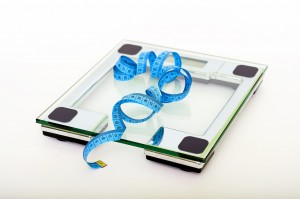 Do you find that at times when you start eating that you just can’t stop yourself? And then when your clothes don’t fit do you decide to resolve that by eating more?
Do you find that at times when you start eating that you just can’t stop yourself? And then when your clothes don’t fit do you decide to resolve that by eating more?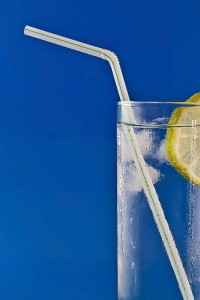



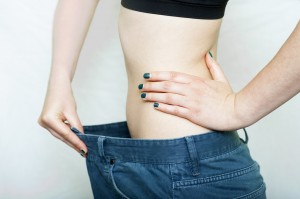
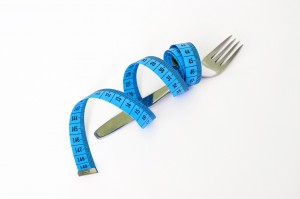 Have you ever met someone for the first time and noticed that something about them reminds you of someone or something else? This is a visual anchor or an anchor triggered by your sense of sight. Until now all of your anchors have been installed in your subconscious mind by someone else or by accident and in most cases you were not even aware of them. Now for the first time through the process of Burris MIND/FITNESS, you can learn how to anchor a reaction or behavior you want on purpose and consistently get the results you want over and over, until you are assured of attaining your weight loss goals.
Have you ever met someone for the first time and noticed that something about them reminds you of someone or something else? This is a visual anchor or an anchor triggered by your sense of sight. Until now all of your anchors have been installed in your subconscious mind by someone else or by accident and in most cases you were not even aware of them. Now for the first time through the process of Burris MIND/FITNESS, you can learn how to anchor a reaction or behavior you want on purpose and consistently get the results you want over and over, until you are assured of attaining your weight loss goals.
